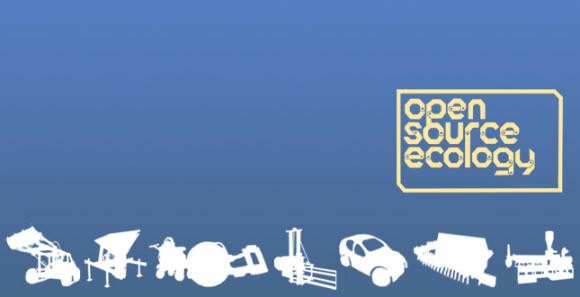A modern, comfortable
lifestyle relies on a variety of efficient Industrial Machines. If you eat
bread, you rely on an Agricultural Combine. If you live in a wood house, you
rely on a Sawmill. Each of these machines relies on other machines in order for
it to exist. If you distill this complex web of interdependent machines into a
reproduceable, simple, closed-loop system, you get 50 base industrial machines.
For a concise presentation go here.
The Global Village
Construction Set (GVCS) is an open technological platform that allows for
the easy fabrication of the 50 different Industrial Machines that it takes to
build a small civilization with modern comforts.
Open Source Ecology is a network of
farmers, engineers, and supporters building the GVCS, this modular, DIY,
low-cost, open source, high-performance platform that allows for the easy
fabrication of those 50 different industrial machines that it takes to build a
small, sustainable civilization with modern comforts. The aim of the GVCS is to
lower the barriers to entry into farming, building, and manufacturing. Its a
life-size lego set that can create entire economies, whether in rural Missouri Long
Beach , California
Declaring that, "We can lead self-sustaining lives without sacrificing our standard of living," Marcin Jakubowski believes that only by opening the means of production can we achieve abundance for all. Though he has a Ph.D. in fusion physics, he became dissatisfied with its remoteness, and turned back to the earth as a farmer and social innovator. He is the founder of Open Source Ecology, which is creating the GVCS the blueprints for simple fabrication of everything needed to start a self-sustaining village. At Factor e Farm in rural


No comments:
Post a Comment
Note: Only a member of this blog may post a comment.